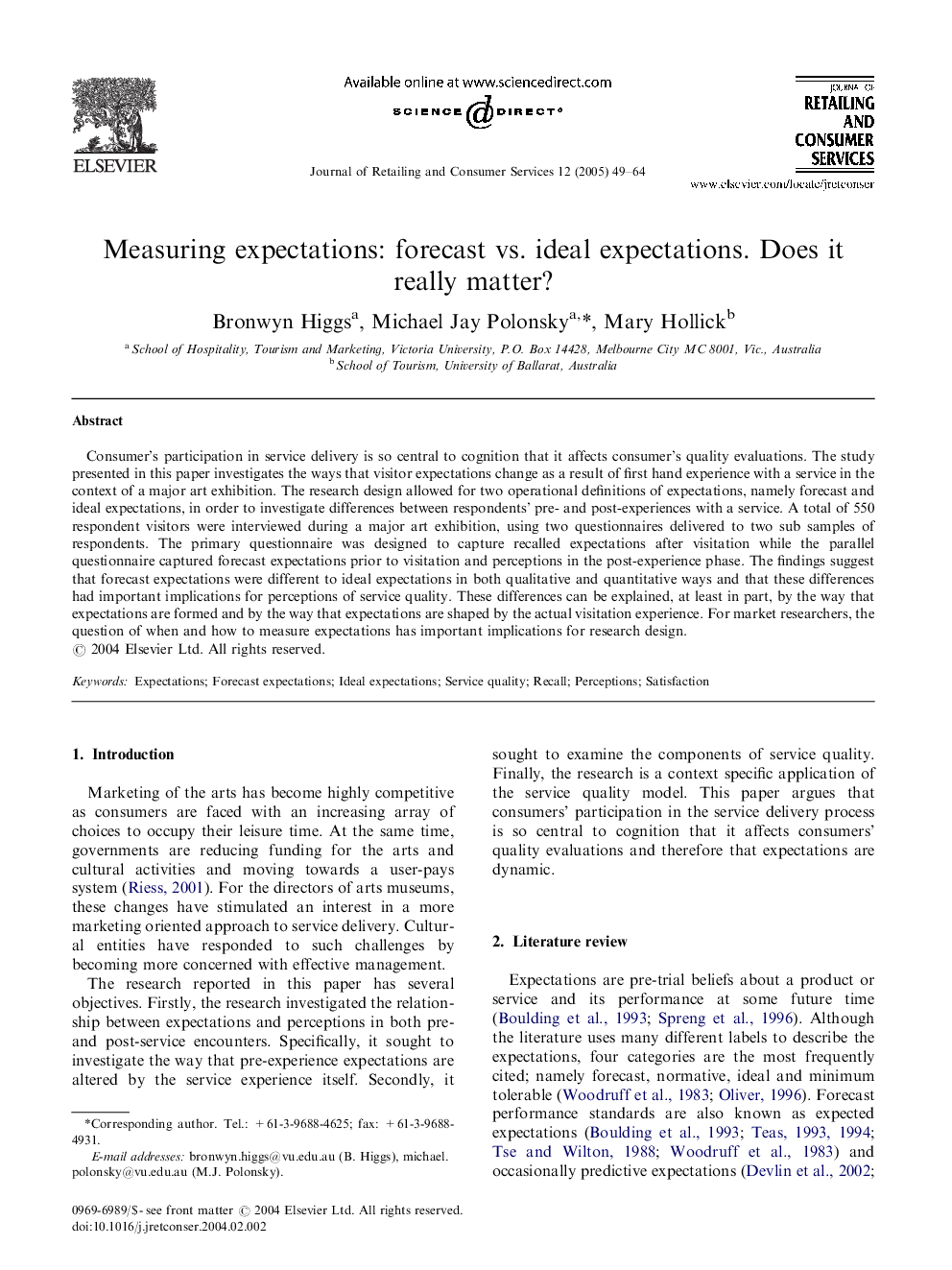| Article ID | Journal | Published Year | Pages | File Type |
|---|---|---|---|---|
| 10496768 | Journal of Retailing and Consumer Services | 2005 | 16 Pages |
Abstract
Consumer's participation in service delivery is so central to cognition that it affects consumer's quality evaluations. The study presented in this paper investigates the ways that visitor expectations change as a result of first hand experience with a service in the context of a major art exhibition. The research design allowed for two operational definitions of expectations, namely forecast and ideal expectations, in order to investigate differences between respondents' pre- and post-experiences with a service. A total of 550 respondent visitors were interviewed during a major art exhibition, using two questionnaires delivered to two sub samples of respondents. The primary questionnaire was designed to capture recalled expectations after visitation while the parallel questionnaire captured forecast expectations prior to visitation and perceptions in the post-experience phase. The findings suggest that forecast expectations were different to ideal expectations in both qualitative and quantitative ways and that these differences had important implications for perceptions of service quality. These differences can be explained, at least in part, by the way that expectations are formed and by the way that expectations are shaped by the actual visitation experience. For market researchers, the question of when and how to measure expectations has important implications for research design.
Related Topics
Social Sciences and Humanities
Business, Management and Accounting
Marketing
Authors
Bronwyn Higgs, Michael Jay Polonsky, Mary Hollick,
